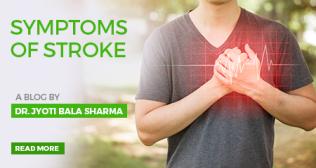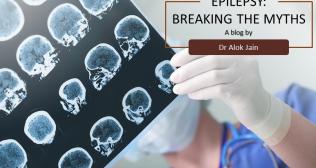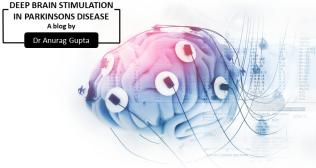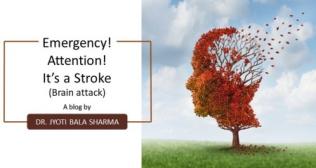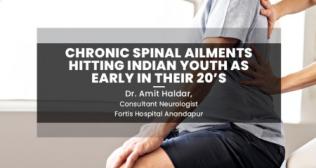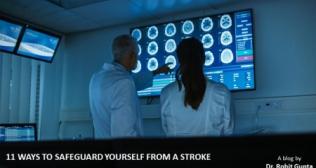
Alzheimer's Disease: Causes, Symptoms, Treatment & Risk Factors
Alzheimer's disease is a progressive neurological disorder that affects memory, thinking, and behavior. It is the most common form of dementia, accounting for 60-80% of dementia cases, it impacts more than 50 million people around the world, with a new person being diagnosed every three seconds.
1. How do factors such as lifestyle changes effective in reducing the risk of developing Alzheimer's?*
Research has identified several lifestyle factors that may impact the risk of developing Alzheimer's disease. Here are some of the key lifestyle factors that may influence Alzheimer's risk:
- Physical activity: Regular exercise may reduce the risk of Alzheimer's by improving cardiovascular health and reducing inflammation.
- Diet: A balanced diet rich in fruits, vegetables, whole grains, and healthy fats (such as the Mediterranean diet) may support brain health.
- Social engagement: Staying socially active and connected with others may help build cognitive reserve and reduce the risk of Alzheimer's.
- Cognitive stimulation: Engaging in mentally stimulating activities (e.g., reading, puzzles, learning new skills) may help build cognitive reserve.
- Sleep: Getting adequate sleep (7-9 hours/night) is essential for brain health and may reduce Alzheimer's risk.
- Stress management: Chronic stress may increase Alzheimer's risk; practicing stress-reducing techniques (e.g., meditation, yoga) may help.
- Smoking: Smoking may increase Alzheimer's risk; quitting smoking can reduce this risk.
- Excessive alcohol consumption: Heavy drinking may increase Alzheimer's risk; moderate alcohol consumption (1 drink/day for women, 2 drinks/day for men) may be beneficial.
- Head trauma: Repeated head trauma (e.g., concussions) may increase Alzheimer's risk; taking safety precautions (e.g., wearing helmets) can help.
2. What are the early warning signs of Alzheimer’s that people and families should be aware of?*
Here are some early warning signs of Alzheimer's disease:
i. Memory loss: Forgetting recently learned information, important dates, or repeatedly asking for the same information.
ii. Communication difficulties: Struggling to find the right words, following conversations, or understanding written or spoken language.
iii. Problem-solving challenges: Difficulty with abstract thinking, making decisions, or judging time and space.
iv. Mood changes: Becoming easily agitated, anxious, or depressed, showing rapid mood swings.
v. Personality changes: Becoming passive, suspicious, or withdrawn, showing a lack of interest in activities.
vi. Disorientation: Difficulty understanding time, place, or situation.
vii. Difficulty with daily activities: Trouble with daily tasks like bathing, dressing, or cooking.
viii. Visual-spatial issues: Difficulty with balance, coordination, or understanding visual information. It should be kept in mind that everyone experiences some of these symptoms at some point, but if you notice a consistent pattern or combination of these signs, consultation with a healthcare professional for a proper evaluation and guidance should be done.
3. How can people differentiate between normal age-related memory loss and early symptoms of Alzheimer’s leading to dementia?
It should be kept in mind that everyone experiences some of these symptoms at some point, but if you notice a consistent pattern or combination of these signs and if it starts impacting activities of daily life it is an early sign of dementia. These patients need consultation with a healthcare professional for a proper evaluation and guidance.
4. How much does genetics play a role in Alzheimer’s, and what genetic factors are linked to increased risk?
Genetics play a significant role in Alzheimer's disease. While the exact causes are still not fully understood, research has identified several genetic factors that contribute to the risk of developing Alzheimer's.
- Early-onset Alzheimer's: Certain genetic mutations (APP, PS1, PS2) can cause early-onset Alzheimer's (before age 65).
- Late-onset Alzheimer's: Multiple genetic variants (e.g., APOE-e4) increase the risk of late-onset Alzheimer's (after age 65).
- APOE-e4: The APOE-e4 gene variant is the strongest genetic risk factor for late-onset Alzheimer's.
- Family history: Having a first-degree relative (parent or sibling) with Alzheimer's increases a person's risk.
5. Can genetic testing help in determining the risk for Alzheimer's
Currently, genetic testing is primarily used for research purposes or in cases of early-onset Alzheimer's.
6. Can you share the latest advances in Alzheimer’s research, particularly in terms of treatment and prevention. Are there any promising new therapies or drugs currently being developed to treat Alzheimer’s?
Treatment for Alzheimer's disease typically involves a combination of medications, lifestyle changes, and supportive care. Medications like cholinesterase inhibitory and memantine are useful in the management of AD. Other than medications, the following can also be useful :
Lifestyle Changes:
1. Cognitive stimulation: Engage in mentally stimulating activities (e.g., puzzles, reading).
2. Exercise regularly: Physical activity may slow cognitive decline.
3. Social engagement: Stay connected with others.
4. Healthy diet: Focus on whole, nutrient-rich foods.
5. Stress management: Practice stress-reducing techniques (e.g., meditation).
Supportive Care:
1. Caregiver support: Educate and support caregivers.
2. Behavioral management: Address behavioral changes (e.g., agitation, aggression).
3. Physical therapy: Maintain mobility and strength.
4. Occupational therapy: Assist with daily activities.
5. Speech therapy: Help with communication.
7. What roles do experimental treatments, such as immunotherapy or gene therapy, play in Alzheimer’s research today?
Newer directions like immunotherapy that target the beta amyloid deposition in the brain are being tested on trial basis. Lecanemab, a humanized IgG1 monoclonal antibody that binds with high affinity to Aβ soluble protofibrils, is being tested in persons with early Alzheimer’s disease.
8. Are there specific stress-management techniques that have shown to be beneficial in reducing Alzheimer’s risk?
Alternative Therapies:
1. Music therapy: May reduce agitation and improve mood.
2. Art therapy: Encourages self-expression.
3. Pet therapy: Can reduce stress and improve mood.
Categories
Clear allMeet the doctor

- Neurology | Neurology
-
26 Years
-
1200










